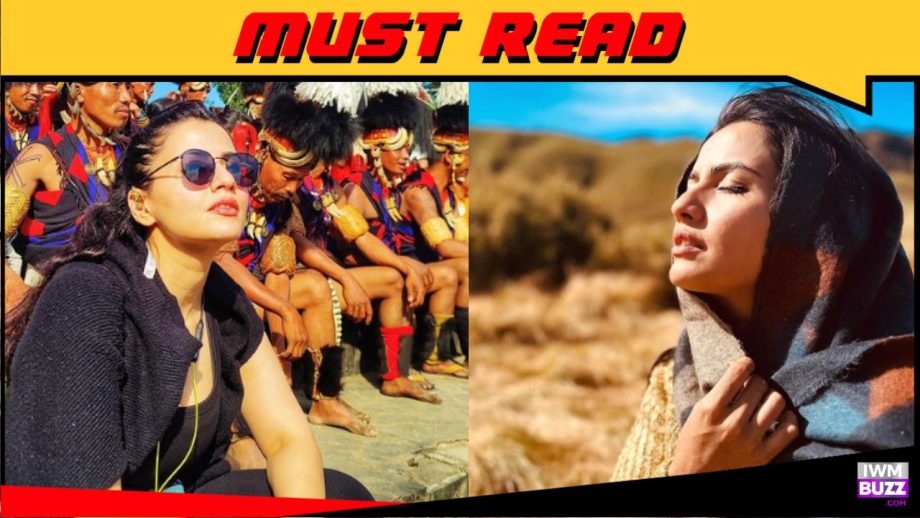Smriti Kalra, the talented actress, who is known for her roles in projects like Darran Chhoo and Cash, recently embraced a new and adventurous chapter in her life—solo backpacking trips to the lesser-explored regions of Nagaland and Sikkim in Northeast India. Beyond the allure of adventure, Smriti’s journeys have evolved into a personal journey for self-discovery and independence. In an exclusive conversation with IWMBuzz.com, Smriti revealed about her trips.
When did you discover your passion for solo traveling?
I discovered my passion for solo traveling last year. While reading, I came across a quote that says, ‘Either life is one big adventure or nothing at all,’ and it resonated with me. One fine day, I thought, can I survive on my own without anyone’s help, even though I stay alone in Mumbai? Despite being surrounded by friends, family, and people, the idea of being in the wild, solely dependent on myself, triggered something in me. I decided to solo travel to unexplored places.
Can you share a specific moment during your solo travels that had a profound impact on your change of perspective?
When you’re traveling solo, you have ample time with your thoughts and emotions. In the city, we often postpone emotions and thoughts for later. However, during solo travel, you live with those emotions and thoughts, allowing you to experience, analyze, and rationalize them. The entire journey helps you see things more clearly, not just with your eyes and ears but with your mind and heart when they are at peace.
What challenges did you face as a solo traveler, and how did you overcome them?
As a solo traveler, you depend solely on yourself, necessitating care for both your body and mind. Challenges, like being a vegetarian in Nagaland, navigating phone issues in remote areas, or dealing with unexpected obstacles, were overcome by making friends with locals and fellow travelers. They ensured I had vegetarian food and helped me connect with loved ones through their Wi-Fi hotspots.
In your interactions with locals, how did you break down barriers and connect with people in unfamiliar environments?
The language of love, compassion, and respect is universal. Talking to people with these values breaks down any barriers. I approach life this way daily, speaking to everyone with respect and love, which transcends cultural differences. This approach makes me feel at home everywhere, embodying the sentiment of ‘Vasudhaiva Kutumbakam’—the whole world is one family.
Were there any specific destinations in Nagaland and Sikkim that left a lasting impression on you, and why?
Kigwima Village in Nagaland, one of the oldest villages of the Angami tribe, left a lasting impression. The history, resilience of the people, emphasis on education and cleanliness, and the sense of community unity made a profound impact.
How did your solo expeditions contribute to your personal growth and self-discovery?
My solo travels in the northeastern part of India, especially Sikkim, served as a reminder of the value of money, basic survival needs, and the innate kindness and compassion within us. It wasn’t a drastic self-discovery but a reconnection with fundamental values that experiences sometimes overshadow.
What plans do you have for future solo trips, and are there specific regions or countries you’re eager to explore?
I aspire to explore the diverse regions of India, particularly tribal areas. The richness of diversity in Bharat is my future travel plan, focusing on uncovering the unique cultures within the country.

